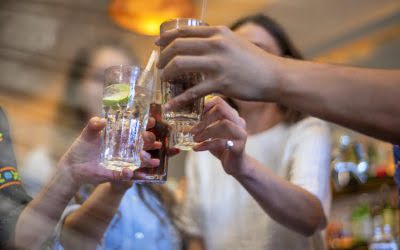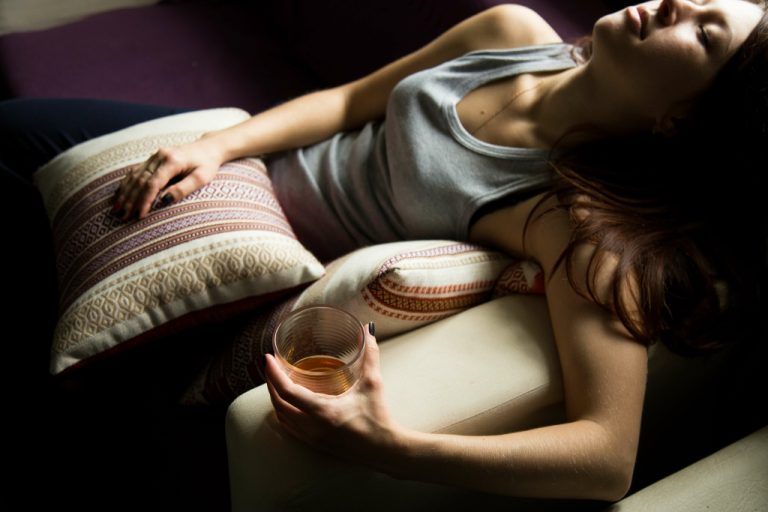Contents
We strive to only recommend products that adhere to our philosophy of eating better while still enjoying what you eat. Will have essentially no noticeable impact on your blood sugars, especially if it means you made sure to take it before the night got too rowdy. They should try to wake you up to be sure you are not “blackout drunk” and insist that you check your blood sugar and think about any medications you still need to take. If they discover that you are “blackout drunk” and unresponsive, they should call 911. Should you still teach your friends how to administer emergency glucagon to use if you’re struggling with severe hypoglycemia and vomiting while drinking? But keep in mind that it isn’t going to raise your blood sugar nearly as quickly as it would when you are sober.


Talking to your doctor is the best way to ensure what amount of alcohol, if any, is safe for consumption while managing diabetes. While pure forms of alcohol like whisky and vodka don’t contain sugar, other forms of alcohol, like beer and wine, do. The amount of sugar in an alcoholic beverage varies—for example, a small glass of wine can range anywhere from 1-16 grams of sugar depending on the type of wine.
Generally, eating a meal with your drinks is critical, and ideally, that meal would contain a few carbohydrates, too. For high-carb meals, you will need insulin for a large majority of those carbs. The more complicated the meal , the more complicated dosing your insulin around that meal with alcohol onboard too will be. Due to the unpredictable effects of alcohol on your blood sugar and insulin needs, there are two worst-case scenarios for a person with diabetes when consuming alcohol.
Other benefits
It is less likely that you’ll go out for a drink every time you think of having one. This can be especially dangerous if you have diabetes and take insulin. Blood sugar is the concentration of sugar in the blood at one time. Keep hydrated with zero-calorie beverages, such as water or diet soda. Always wear a medical alert piece of jewelry that says you have diabetes. Alcohol may also affect your judgment or willpower, causing you to make poor food choices.
If you have a dog, keep xylitol out of reach or just don’t buy it. While xylitol is well tolerated by humans, it’s highly toxic to dogs. Sugar alcohols come with a few downsides you should be aware of before adding them to your diet. Sugar alcohols have a number of other potential benefits worth highlighting. Xylitol is well known for its beneficial effects on dental health and has been studied thoroughly . Talk to your doctor about adjusting how much insulin you take and what types of insulin (such as short-acting) to use.
In contrast, sugar alcohols like xylitol and erythritol may protect against tooth decay . The lower the GI index of a food, the slower your blood sugar level rises after you consume that food. That means a lower GI index food is healthier than a higher GI index food. Maltitol has a very similar taste and mouthfeel to regular sugar.

While alcohol does cause a spike in blood sugar, it often also leads to a drop in sugar after this initial spike. Alcohol changes how the pancreas functions and leads to an increase in insulin while inhibiting the liver’s normal ability to release sugar. This pair of effects leads to an overall drop in blood sugar. The role of blood sugar in your overall health is extremely important to understand for quite a few reasons, and it’s also helpful to know how alcohol affects blood sugar. Medical News Today has strict sourcing guidelines and draws only from peer-reviewed studies, academic research institutions, and medical journals and associations.
Try to reduce your total sugar consumption by replacing sugary beverages with water or cutting back on your sugary beverage intake. These are types of carbs that your gut can’t absorb very well, which may lead to gastrointestinal side effects in some people. For example, most people who consume under 10 grams of sorbitol won’t experience significant digestive issues, aside from a bit of gas and bloating. However, if you consume more than 20 grams, it can cause significant digestive issues, including pain and diarrhea . Studies have shown that erythritol appears to have similar effects on dental health and may reduce the risk of cavities .
Diabetes Health Center
While they’re generally well tolerated, consuming high amounts of some sugar alcohols, such as sorbitol, may cause bloating and diarrhea, especially if you consume them in large amounts. When insulin goes up, dogs’ cells start pulling sugar out of their bloodstream. This can lead to low blood sugar and other side effects — including liver failure, which can be fatal .
- If you’ve already been diagnosed with conditions relating to your kidney or liver function, Harris says alcohol truly is something you should avoid entirely.
- Typically, alcohol withdrawal symptoms happen for heavier drinkers.
- To promote overall health, it’s a good idea to cut back on your consumption of added sugars, artificial sweeteners, and low calorie sweeteners like sugar alcohols.
- Food, on the other hand, is digested gradually, so it provides better protection against lows.
- They’re considered low digestible carbs, meaning that when you eat them, your small intestine doesn’t completely absorb them.
It’s not always easy to find out the macronutrient breakdown for foods without nutrition labels. The Levels app, products, and services should never be used for medication management or dosing decisions. I especially liked the piece where you quoted the spectrum of folks experiences and tricks at the end. If you found this guide to diabetes and alcohol useful, please sign up for our newsletter (and get a sign-up bonus) in the form below.
Does Alcohol Lower Blood Sugar?
Anyone drinking an alcoholic beverage will need to look at the nutritional facts on specific beverages to know how much sugar they contain. Normal fasting blood sugar levels should be in the range of 70–100 milligrams per deciliter (mg/dl). People who have untreated diabetes generally have blood sugar levels higher than 126 mg/dl. Always treat low blood sugar levels under 70 mg/dL immediately and call 911 if you’re experiencing a severe low blood sugar that’s not responding to treatment.

Remedying reactive hypoglycemia in general is different from treating an acute episode of low blood sugar. Dropping too low (under 70 mg/dL) several hours after drinking the liquid could be a sign that you’re suffering from reactive hypoglycemia. Struggling with both high and low blood sugars is pretty much an expected part of living with diabetes. But too much sugar alcohol in your diet can have unpleasant side effects. Bissell tells us what we need to know to reap the benefits and avoid the drawbacks. “Sugar alcohols may have a slight influence on your blood sugars, but overall, they’re safe to include as part of a balanced diet,” says registered dietitian Tegan Bissell, RD.
More studies are needed to assess every factor that affects blood sugar levels. Understanding how alcohol influences people with type 1 diabetes is also needed. Conversely, certain alcoholic drinks contain high levels of sugar and can spike your blood sugar levels. People with diabetes are safest avoiding any alcoholic beverages. If alcohol is used, wine is thought to be healthier than other types of alcohol when considering the risk of diabetes.
However, if you’ve tried all of that and are still unsuccessful in treatment, below are some strategies to implement to help manage reactive hypoglycemia. Reactive hypoglycemia typically occurs more often in people who are overweight and obese. In fact, suffering from reactive hypoglycemia, especially late reactive hypoglycemia, may put you at higher risk for developing diabetes. Bissell says that while some sugar alcohols come from fruits and vegetables, most are artificial. Sugar is 100% natural — exclusively coming from fruits, plants, vegetables and milk.
Foods labeled “sugar free” or “no sugar added” might seem like “free” foods you can eat as much of as you like, but overeating them can make your blood sugar levels very high. A person with diabetes who consumes alcohol may begin overeating and making unhealthy food choices. This is because alcohol stimulates a person’s appetite and may cause a further increase in blood sugar levels. Alcohol also interferes with the effects of diabetes medications. Some Nutrition Facts labels may also list sugar alcohols under total carbohydrate.
The foods you eat can have a major impact on diabetes and blood sugar levels. Here are 16 foods to get you on your way to managing diabetes. Most people don’t think about their blood sugar when they have a few drinks at Happy Hour.
Patients share: This is how I manage diabetes and alcohol
If there is a lack of insulin, the bloodstream can experience hyperglycemia when a person has just eaten. While cirrhosis scars from excessive drinking are irreversible, quitting alcohol and leading a healthier lifestyle can help your liver heal from alcohol-related liver disease. It is important to note that while wine may help reduce the risk of developing diabetes, it may not be safe to use for someone who already has developed diabetes. Additionally, heavy use of wine or any alcohol negates any positive effect the wine may provide.
Heavy the perfect sobriety gifts use is also thought to impair insulin receptor signaling, making the entire body more resistant to taking up glucose into cells. Pancreatic beta cells are particularly sensitive to the toxic cellular effects of acetaldehyde, a metabolite of alcohol. If you are diabetic, check your blood sugar before and more frequently after drinking up to 24 hours later. Consider reducing the insulin dose of fast-acting insulin for meals while drinking to prevent low blood sugar hours after you’ve finished drinking. If you did have large ketones, and you’re unable to keep fluids down, you should call 911 or ask a friend to drive you to the emergency room. The only way to safely rebalance your hydration, blood sugar, and ketone levels is an intravenous bag of saline, electrolytes and possibly glucose and insulin.